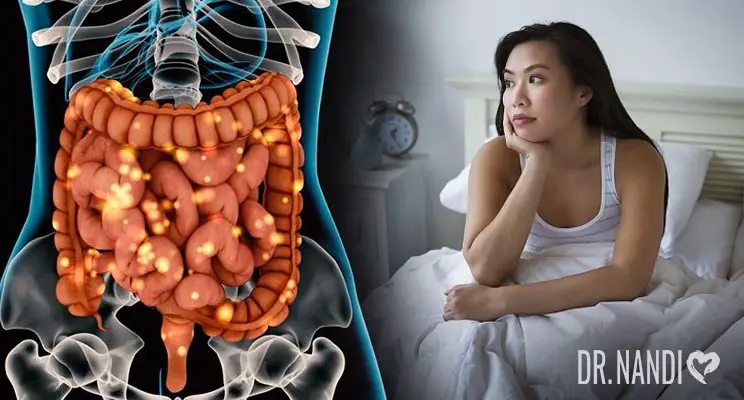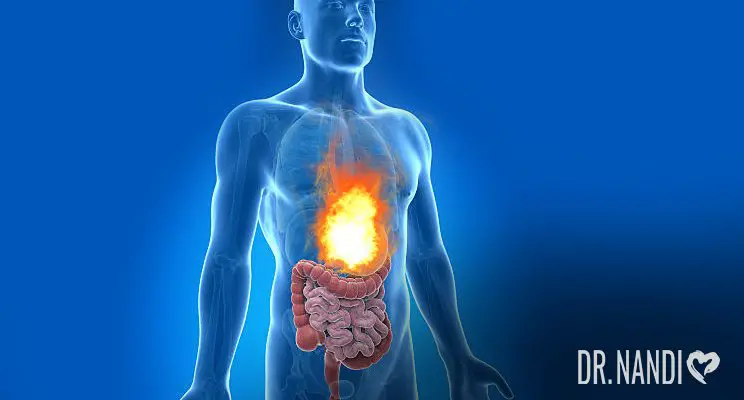Gut health is connected to everything in your body; I remind my patients this often. According to new research, even your good night’s sleep may depend on your digestive health.
You may blame stress, anxiety, memories popping up, depression, racing thoughts, adrenaline, loud neighbors, too much light, and lying awake at night. The truth is that your gut may be what is keeping you awake.
Study: The Gut-Sleep Connection
New research indicates a strong correlation between your microbiome health and sleeps health. Matt Walker, director of the Center for Human Sleep Science and author of Why We Sleep, explained the connection between your appetite, obesity, weight gain, insulin resistance, glucose regulation, and the lack of sleep.
What we know is that sleep deprivation decreases leptin in your body. Leptin is responsible for feeling fullness; therefore, such a decrease can lead to overeating and obesity. Lack of sleep can also affect your impulse control leading to mindless eating and unhealthy choices, such as giving in to the desire for comfort foods and sugary junk foods. Poor food choices lead to poor gut health, and by promoting unhealthy eating habits, poor sleep leads to an unhealthy microbiome.
Dr. Michael Breus, a clinical psychologist and fellow of the American Academy of Sleep, agrees that focusing on improving gut health can become the new sleep therapy. A healthy gut can help with sleep-related physiological functions, including affecting hormones responsible for sleep and wakefulness, altering sleep-wake cycles, and shifting circadian rhythms.
How To Improve Microbiome Health
A long list of studies shows that probiotics and prebiotics improve your gut health. According to a recent study and a new documentary, prebiotics can positively affect sleep. (1, 2)
Tim Spector, a professor of genetic epidemiology at King’s College London and author of The Diet Myth, is another believer in the gut and sleep relation. Poor gut health negatively affects your mood and mental health. Depression, bipolar depression, anxiety, and even mild mood disturbances can lead to insomnia and other sleep issues.
The connection is not clear, though. Some people’s mental health improves through better sleep, and some people’s sleep improves through improvement in their mental health. Spector believes that it is critical to deeper examine and research the role of the gut in this and other health-related issues. He believes that an improved gut-friendly diet can improve sleep and mental health. Christine Hansen, author of Sleep Like a Boss, also agrees that diet is essential for getting quality sleep.
Though experts agree that more research is needed on the gut-sleep connection, we know enough to indicate that eating a whole foods diet with probiotics and prebiotics is essential for gut health and a good night’s sleep. (3)

My Personal RX:
- Take probiotic supplements and/or eat probiotic rich foods (eg. yogurt, kimchi, sauerkraut, kombucha, kefir). Also, consume prebiotic-rich foods (e.g. onion, garlic, banana, apple, leek)
- Eat a whole foods diet, mostly plant-based, rich in greens, vegetables, fruits, nuts, seeds, beans, legumes, and whole grains.
- Do not eat too close to bedtime, especially not heavy meals, sugar, or caffeine.
- Drink herbal tea or golden milk in the evening
If you keep these tips in mind and follow a healthy diet, you can see improvements in your sleep in no time.

References
- https://www.frontiersin.org/articles/10.3389/fnbeh.2016.00240/full
- https://www.bimuno.com/prebiotics-and-sleep
- https://www.theguardian.com/lifeandstyle/2018/mar/19/is-your-gut-keeping-you-awake-at-night


















